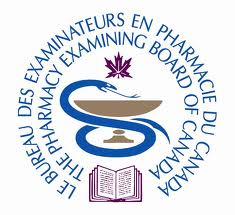to be hospital pharmacist 14
Making the transition from student to professional: how to get through the year
When you first arrive in your pre-reg placement, you are very much the student because, although some of you may have experienced pharmacy practice, you will not have done this from the viewpoint of a pharmacist.
All that knowledge that you got from your university degree will need to be applied in practice and the pre-reg year is the time to do this.
All that knowledge that you got from your university degree will need to be applied in practice and the pre-reg year is the time to do this.
Well, for many pre-regs, just coming to work every day is something that they have never done before. We realize that many of you will have done some part-time work or even worked full time for a short time, but working, learning and being assessed all at the same time is not that easy. We have experienced a whole range of pre-regs from those who take to their training programme like a fish to water to
those who struggle for some time to break out of that student mentality.
those who struggle for some time to break out of that student mentality.
Those pre-regs who struggle often do so because they expect their trainers
and tutors to provide them with lots of direction, i.e. tell them what to do,
and they tend to expect too much – in a sense they will always be in training rather than contributing to the service needs of the department. As we have said before, you are paid a decent salary to be a pre-reg so you need to give
something back to the department. There will be times when you will be asked to do things that you consider to be boring or beneath your role as a pre-reg.
Get over it! You are there to work first and foremost, and the
training or experience comes from this. If you embrace these opportunities and use them to gain more experience, you will have a much better idea of what is involved. Some pre-regs think that they are only there to learn and develop in the things that they want to do, with no regard for what the service needs. In many hospitals, you may be pulled out of whichever rotation you are in and asked to come and help, for example, in the dispensary. If this is the case, take a look around and see why you have been asked to help; it will
probably be because they are busy.
training or experience comes from this. If you embrace these opportunities and use them to gain more experience, you will have a much better idea of what is involved. Some pre-regs think that they are only there to learn and develop in the things that they want to do, with no regard for what the service needs. In many hospitals, you may be pulled out of whichever rotation you are in and asked to come and help, for example, in the dispensary. If this is the case, take a look around and see why you have been asked to help; it will
probably be because they are busy.
know where to start!
As your training programme progresses you will find that you are progressing and seeing things in a different way. What you have learned at university is important but you start to realise that there is no textbook patient and what you have learned is not as black and white as you thought.
Many pre-regs initially struggle with this; there is often more than one correct answer. An example to illustrate this is a patient who has co-morbidities such as heart failure, respiratory disease and renal failure. At university you may
have learned abut these in separate modules and may know how to manage each of these conditions separately, whereas in the real world one patient can have all of these conditions with one possibly affecting the other. This is why
it is important to bring all the knowledge together and think wider than the individual problems. Add to this the patient who does not believe in his or her medicines and does not adhere/comply, and the problem is wider than at first sight.
The first few months of the training programme can be very intense and it is not unusual to think that you did not learn anything useful at university;
this of course is not the case because, otherwise, how did you get through?



Comments